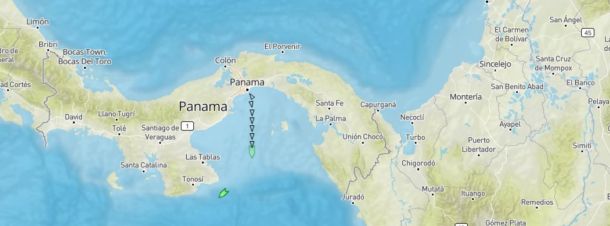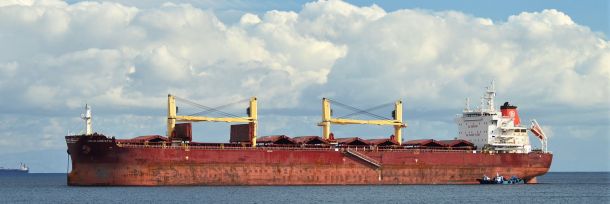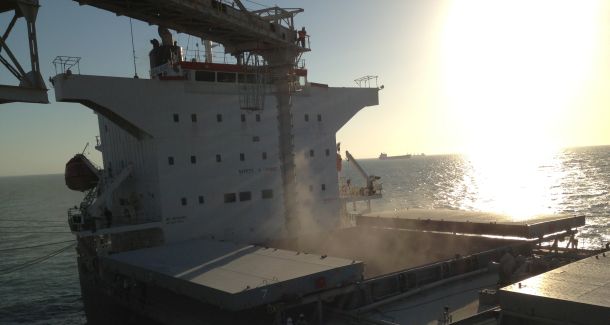Canada bound ship with conflict minerals released from detention

The Ultra Innovation left the port of Panama City on 21 May, and is currently heading towards Vancouver. The dispute over the ownership of the cargo could still be pending court case.
Published 24 May 2017
The graphic above is a screenshot of the bulk vessel's movements as of 20 May 2017, 09:30 CET from Marinetraffic.
In the early morning hours of 21 May, the vessel Ultra Innovation was released from detention in Panama, and is at present heading in a 14 knot speed towards Canada.
The vessel contains conflict minerals - phosphate rock - exploited by the Moroccan government in the territory that it holds under foreign occupation, Western Sahara. The rock is bound for Agrium Inc, a Canadian company that imports via Vancouver harbour. Agrium is the biggest funder of the Moroccan occupation of Western Sahara, which the United Nations is working to decolonise.
The vessel was detained on 17 May due to a dispute over the ownership of the cargo. The Moroccan government claims that it has the right to exploit the phosphate rock mine in the territory that it occupies in violation of international law.
The United Nations secretariat and the Court of Justice of the EU thinks otherwise. Polisario, the legal representative of the people of Western Sahara, tried the case at a court in Panama just three weeks after a it initiated similar case in South Africa concerning a vessel transiting to New Zealand.
Agrium confirmed to Reuters that the shipping company had posted a bond for the release of the ship. Western Sahara Resource Watch expects the matter will be dealt with in the Panamanian court over the coming weeks or months. Ultra Innovation is now expected to arrive in Vancouver on 1 June.
"We are currently working with our charter company (Ultrabulk) to work through the situation. At this time we don’t anticipate any production interruptions at our facility in Alberta (Redwater)," a company spokesperson told Reuters on 18 May.
"We in Afrika Kontakt have tried to explain to Ultrabulk and to the Danish Shipowners' Association that they act in violation of international law. Their replies have not taken our letters seriously, and now one can see the result", the Danish organisation Afrika Kontakt told Danish media.
Ultrabulk has an agreement to transport phosphate rock from Morocco to the Canadian importer. Neither Ultrabulk or Agrium has asked the people of Western Sahara whether they consent to the companies buying and transporting the rock plundered by the country that occupies the territory.
Over the course of the last years, Agrium has emerged as the biggest importer of phosphate rock from the occupied territory. A report by Western Sahara Resource Watch launched in April this year, estimates their imports from Western Sahara for 2016 to be worth around 66,6 million USD, which is twice the amount of the multilateral humanitarian aid given to the refugees from Western Sahara, who own the phosphates. Numerous international financial institutions and funds have blacklisted Agrium over their contribution to Morocco's violation of international law.
News
New report: Western Sahara phosphate trade halved
The export of phosphate rock from occupied Western Sahara has never been lower than in 2019. This is revealed in the new WSRW report P for Plunder, published today.
24 February 2020
New report on Western Sahara phosphate industry out now
Morocco shipped 1.93 million tonnes of phosphate out of occupied Western Sahara in 2018, worth an estimated $164 million, new report shows. Here is all you need to know about the volume, values, vessels and clients.
08 April 2019
Nutrien maintains Western Sahara link via China
Nutrien - until now the biggest importer of phosphate rock from Western Sahara - has ended its trade. But what about the stock-exchange registered Sinofert Holdings in which they are the second biggest owner?
27 January 2019
US imports of Western Sahara conflict rock to end
A landmark decision has been made. The large-scale exports of conflict phosphates from occupied Western Sahara to the United States will stop this year.
13 September 2018



